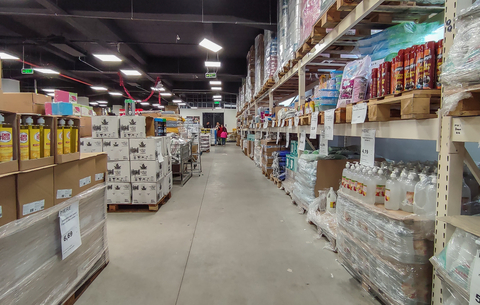Hungary, 500 top companies
After the stabilisation package, before the recession: Hungary's 500 largest companies were only barely able to grow above the rate of inflation in 2007, according to a survey by HVG and Creditreform.
It all depends on your point of view. One year ago, analysts were saying Hungary had got over the worst of of things, though more recent events make the year 2007 look almost quiet.
But it wasn't an easy year. The long-postponed cuts package that was finally implemented in autumn 2006, which cut state spending and slowed the economy with tax increases, had an ambiguous impact.
Companies suffered as the tax burden in Hungary rose by more than in any other developed country - from 37.1 per cent of GDP to 39.4 per cent over just one year. It comes as nor surprise, then, that the price of a modest cut to the budget deficit of Ft2034bn to Ft1291bn came at a cost of GDP growth slowing from 4.1 per cent to 1.1 per cent.
In these circumstances, it was no surprise that the country's 500 largest companies saw revenues grow by just 10.6 per cent, barely above inflation of 8 per cent. In 2006, growth was at 17.5 per cent, compared to inflation of 3.9 per cent.
The very largest companies did less well even than this. The first 50 companies on the list grew by only 10 per cent compared to the year before. It is also clear that this proportion would only be 1.5 per cent higher if revenues at Mol, the perennial leader, had not fallen.
Despite this fall, Mol's position in the lead was not endangered, though this year it no longer generated larger revenues than the companies in second and third place - Audia Hungaria and Nokia Komarom - combined.
The companies in the lead have remained unchanged for years. The only change in the top 10 is that Panrusgaz fell out after a mild winter led to reduced gas sales, and Magyar Suzuki took the number 10 slot.
These small shifts are only meaningful a full year after the 12-month period examined by the survey, since the companies issue results at different times. Two companies in the top 50 would not have made it into the summer top 50, because their results were not yet available.
A comparison with HVG's list from one year ago, based on data from 2006, yields some interesting results. The most recent list contains 59 new names. Eight of these are retailers, while others are in the energy, food and construction sectors. The largest of these is of these is the German-owned First Chemical Holding (26), which was set up to buy BorsodChem (32). The second largest new entrant is the German E.On, in 49th place, with ventures in the electricity and natural gas markets. The third largest is Egaz-Degaz (60), formed from the merger of two regional gas companies.
Another 8 companies vanished from the list. Dunaferr (20) was bought out, while Waberer's Holding (84) bought the Revesz Eurotrans, the second largest transport company. Fourteen companies on last year's list refused to provide data. Most of the rest simply failed to meet the revenue threshold of Ft12.7bn. OTP Real Estate is the largest company to have left the list, while Viadom, a road-builder, has gone into liquidation.
The 56 energy companies in the top 500 accounted for a quarter of the Ft36.6bn in revenues earned by the full list, while 121 retailers made up 15 per cent of the total by revenues. In the top 100, 21 companies are in the energy sector and three are in the food industry, while the food industry accounts for 10 places in the bottom 50.
Some companies grew dramatically despite the difficult environment, although many achieved this simply because they were relatively new. One such is CEZ Magyarorszag, a subsidiary of the Czech electricity company, which is in 195th position, and which only started trading electricity in 2007. Its revenues grew 22 times over the course of the year.
TIBOR MUCK









